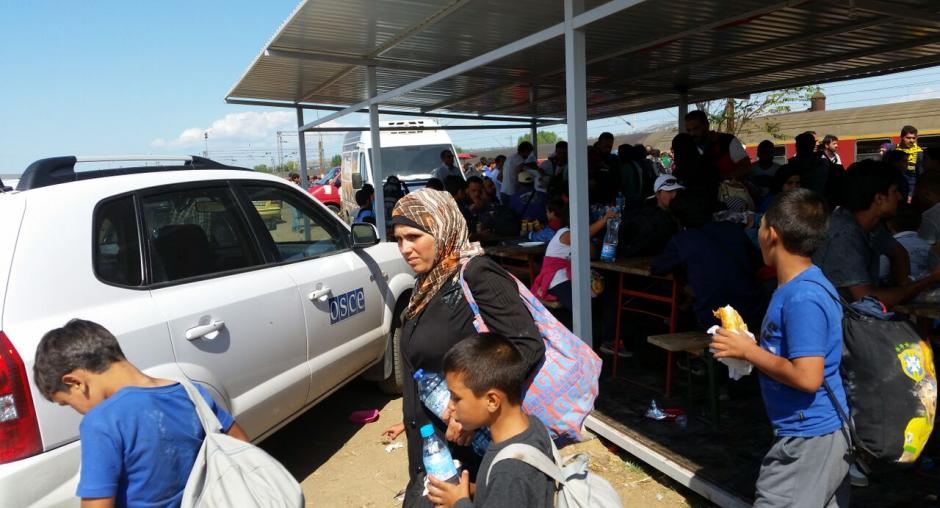Migration
The OSCE is committed to addressing the migration phenomenon cross-dimensionally and by capitalizing on the added value it can bring to regional and global solutions. The organization’s key assets include its wide geographical scope, its broad and diverse membership, its norms-setting function and cross-dimensional engagement, its relationship with the Mediterranean and Asian Partners for Co-operation, and extended field presence.
The OSCE provides support in capacity-building, policy advice, awareness raising and advocacy, as well as dialogue support. Key policy areas in addressing migration include:
- Regulating migration: border management, travel document security, countering transnational threats, including human trafficking along migration routes;
- Facilitating legal migration: labour migration governance and research, data collection and harmonization; and
- Supporting people and communities: freedom of movement, tolerance and non-discrimination, integration, refugee referral.
The OSCE can further support international efforts on migration-related matters with its solid track record in the human dimension and its recognized role in human rights monitoring. Furthermore, the OSCE plays an important role in promoting integration, tolerance and non-discrimination, as well as education. The work of the OSCE Institutions in these areas can also be applied to migration challenges. In order to avoid duplication and reinforce synergies on migration-related matters, the OSCE engages with other regional and international organizations through high-level dialogue and co-operation.
Cross-cutting issues and long-term focus areas:
- Human rights;
- Gender-sensitive aspects;
- Regional co-operation;
- Conflict prevention and resolution;
- Environmental protection;
- Sustainable development;
- Partnerships with Mediterranean and Asian countries;
- Partnerships with international and regional organizations;
- Civil society engagement.

